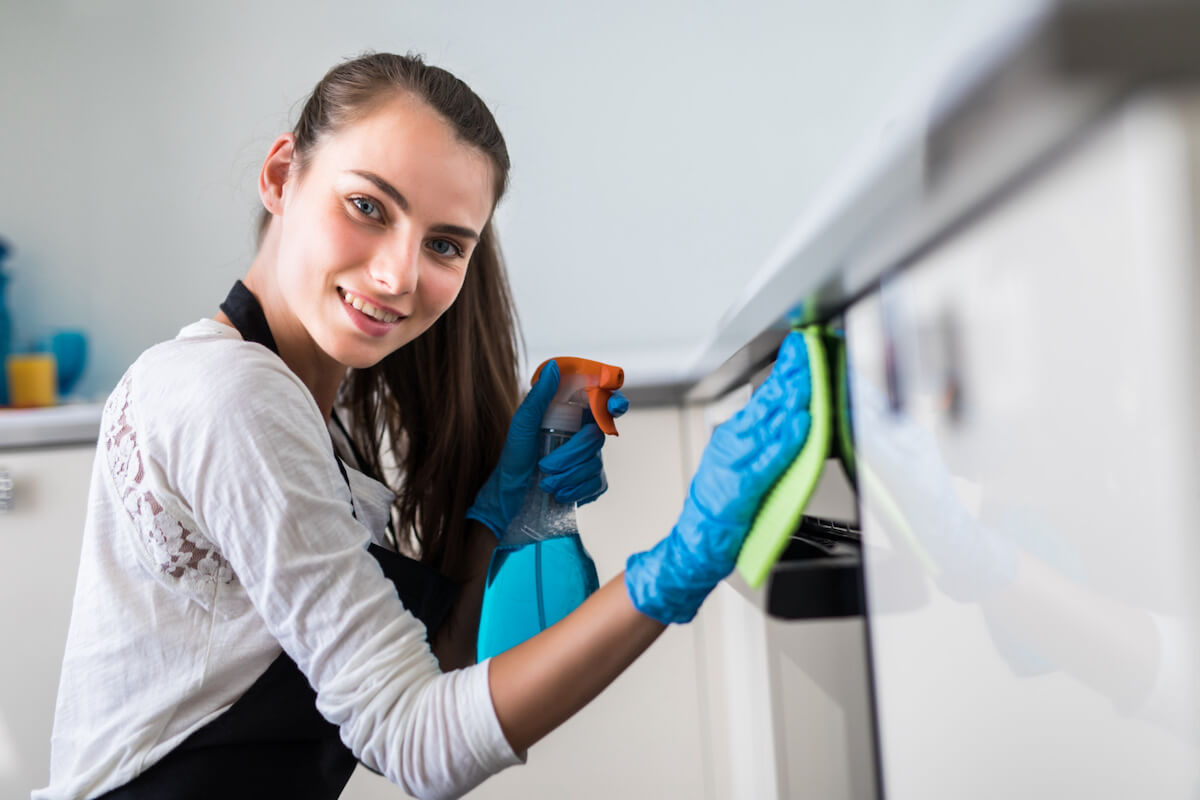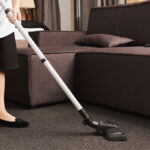The oven is the most ignored household device when it comes to home cleaning. It attracts dust, dirt, grease, spills, food particles, and other contaminants. Every time you use the device, these items are incinerated.
Although removing the thick coating of dirt is a difficult chore, you should not put it off for too long. Using a filthy oven not only reduces its effectiveness but also puts your safety in jeopardy. As a result, you must thoroughly clean it.
The difficulty now is how to clean it properly. Oven cleaners abound in Sydney stores, but the majority of them contain harmful chemicals. The indoor air is contaminated by these harmful chemicals. As a result, natural materials should be used to clean the oven.
Microwave ovens are a must-have in any modern household. It not only makes reheating leftovers simple, but it also makes excellent and quick dinners. However, cleaning out a particularly filthy microwave oven is something that no homeowner wants to undertake. A microwave, unlike a conventional oven, can be cleaned in a few simple steps. But before that let’s take a look at why cleaning an oven is so important and how frequently you should clean it.
Table of Contents
Why is Cleaning The Oven So Important?
While cleaning the oven is a tedious duty that many of us would rather avoid, it is critical to the health of your kitchen – and the health of the food you prepare. Spilled food left in the oven will eventually burn and, in some situations, catch fire. From that point forward, anything you prepare will have an awful smokey flavor.
Germs can be carried by good residue left in the oven, and those germs can be transmitted every time you use them. Failure to clean the appliance on a regular basis allows bacteria and pests to thrive and infect your food.
How Frequently Should I Clean My Oven?
An oven should be cleaned every three to six months, or more frequently depending on how often it is used. To make the task easier all-around, it’s also recommended that an oven be spot cleaned in between significant cleans. Remember that, like with other things, the longer you wait, the more difficult it will be to get back into excellent shape. Also, the best you can opt for is to contact professional oven cleaning services in sydney and get it done with them to improve the longevity of your microwave oven.
7 Best Oven Cleaning Methods to keep it Clean and Shiny
Clean it with Wet Paper Towel
If your microwave doesn’t appear like it had a nuclear explosion inside it, cleaning it with a bunch of moist paper towels should suffice. Simply throw the damp paper towels inside your microwave and cook on high for around 5 minutes. This method generates steam, which aids with the removal of unwanted debris and impurities from your microwave. It can also be used as a starting point for more difficult problems, such as stuck food.
Try Dish soap
This method is nearly identical to the Wet Paper Towel Method. Place a non-metallic microwave-safe bowl in the microwave with equal parts water and dish soap. Allow it to run for 1 minute on high heat or until it steams. Remove the bowl and wipe the interior of your microwave with a sponge. While you’re at it, clean the microwave door as well.
Magic of Baking Soda
Baking soda, among other things, is the go-to cleaner for stuck food in your microwave. Make a paste with baking soda and water and apply it to any hardened food that has become trapped in your microwave. Allow at least 5 minutes for it to dry before wiping it away with a wet sponge or cloth. Repeat the procedure until all of the charred food has been removed entirely and effortlessly.
Combination of Vinegar and Water
The procedure for utilizing this solution is the same as for dish soap. In a microwave-safe bowl, combine one cup of water and equal parts vinegar. Place it in the microwave for a few minutes to steam. Make sure to clean the device dry before using it again to ensure that no vinegar residues remain inside your microwave. Vinegar water is a time-tested, multi-purpose natural cleaning agent that helps to remove tough stains and filth. For an extremely dirty microwave, this is a marriage made in heaven.
Keep it fresh with Lemon
Lemon, like vinegar, is an excellent natural disinfectant for microwave ovens. Simply half a lemon and place cut side down on a microwavable platter. Place the plate in the microwave with a few teaspoons of water until steam appears. Remove the dish from the microwave and wipe away any extra liquid; that’s all there is to it. Wipe off the interior and exterior of your microwave door once more.
Diluted Window Cleaner for Microwave Doors
Although you may not realize it, your microwave’s door requires some tender loving care as well. It’s a good thing a diluted window cleaner can clean both the interior and exterior of the microwave. Start scrubbing the interior and outside of your unit with a rag or sponge dipped in the solution. To make sure the complete microwave cleaning, repeat the process. If the window cleaner fragrance bothers you, simply scrub it with a clean cloth dipped in water one more time.
Professional Oven Cleaning products
If you don’t want to take the chance of using alternative disinfectants for Microwave cleaning and lemon, baking soda, or vinegar aren’t cutting it, it’s time to invest in commercial microwave cleaning products. One thing to keep in mind is that you should use professional oven cleaning products, that won’t leave a terrible odor or fumes in your unit, which could damage the scent and flavor of the food you’re preparing.
Safety Measures and Oven Cleaning Tips
- To avoid any untoward accidents, turn off and unplug your microwave before cleaning unless you need to use the heat to clean your device.
- Never put anything metallic in your microwave. When cleaning your microwave, avoid using metallic brushes and the like.
- When utilizing water, be cautious. Microwaves are electric equipment, and if you aren’t careful when cleaning them with water, you risk destroying them.
- Order takeout and clean your microwave’s turntable on a regular basis. It’s absolutely fine to wash it by hand or in the dishwasher, just like any other plate. Just make sure it’s thoroughly dry before you use it again. And don’t forget to return it before someone else does.
- When heating food or liquids in the microwave, always use lids. It lowers splatter incidences, allowing you to get more time between cleanings.
- When using your microwave, keep it on the lowest temperature possible to avoid spattering or scorching food. Remember to correctly operate your microwave not only to make cleaning easier, but also to avoid cooking mishaps.
- When cleaning your microwave, stay away from harsh chemicals. Remember that you’re cooking food or beverages in your device, and you don’t want to consume those chemicals by accident.
- A microwave with an internal problem will not be fixed by cleaning. If your machine suddenly stops operating, you should contact a professional oven cleaning services provider like cheap cleaning in Sydney. However, if you keep your machine in good functioning order, it will assist keep it in great form.




